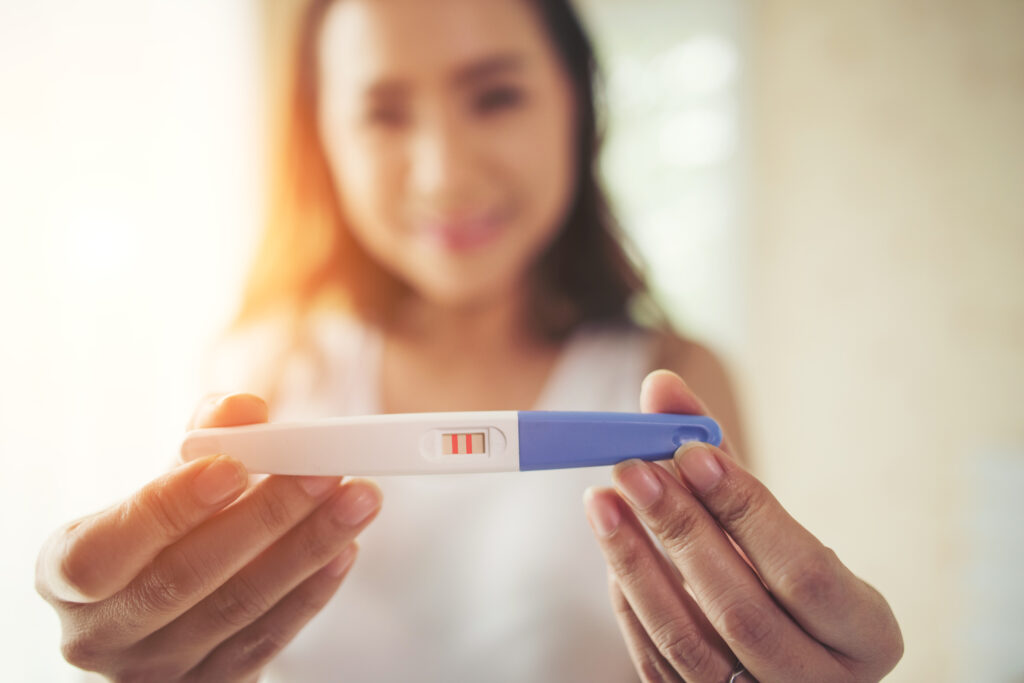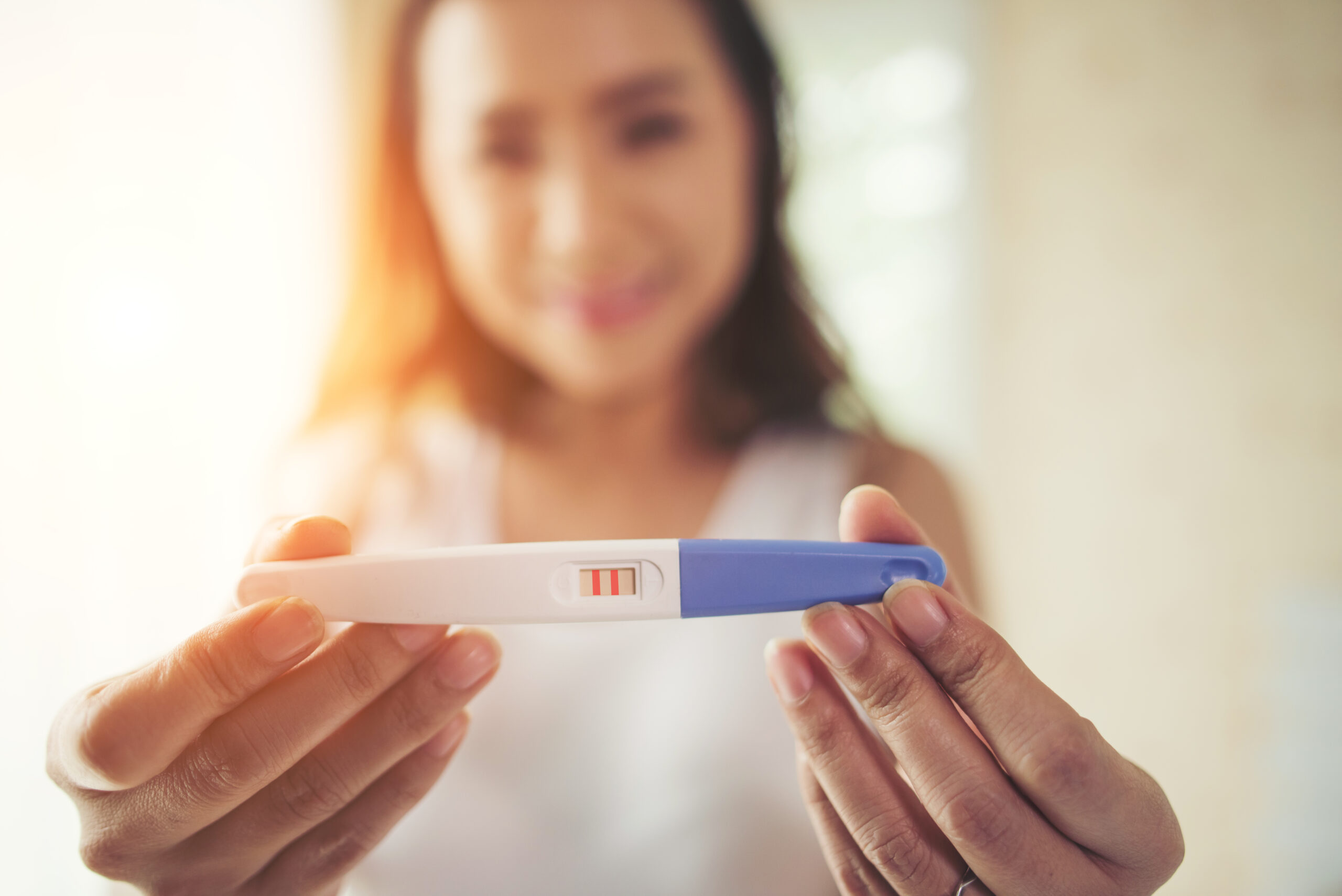Discover the best time to take a pregnancy test for accurate results, including factors that influence timing and tips for reliable testing.
Taking a pregnancy test is an emotionally charged moment for many women, whether they’re hoping for a positive result or bracing for a negative one. But when should you take a pregnancy test to ensure that you get the most reliable outcome?
Understanding the right time to take a pregnancy test can prevent confusion, disappointment, and unnecessary worry. In this guide, we’ll explore when you should take a pregnancy test, how pregnancy tests work, and the key factors that influence their accuracy.
How Do Pregnancy Tests Work?
The Role of hCG
Pregnancy tests work by detecting the presence of human chorionic gonadotropin (hCG), a hormone that is produced after a fertilized egg implants in the uterus. This hormone increases rapidly in the early stages of pregnancy and can usually be detected in urine about 10 days after conception. However, the timing can vary depending on the individual and when ovulation and implantation occur.
The Best Time to Take a Pregnancy Test
Waiting Until After a Missed Period
For the most accurate result, it’s best to wait until after your missed period to take a home pregnancy test. This is because, by this time, hCG levels in the urine should be high enough to be detected reliably. Testing too early may result in a false negative, as hCG levels might not have reached a detectable level yet.
Many pregnancy tests on the market today claim to provide accurate results before a missed period, but the reliability of these tests can vary. For the most reliable results, waiting until the first day of a missed period or later is ideal.
Testing Too Early: What Happens?
Testing early, especially before your period is due, can lead to inaccurate results. While some women might produce enough hCG to be detected in early pregnancy tests, others may not. This can result in:
- False Negatives: A test may show negative even if you are pregnant because the hCG levels haven’t built up enough.
- Evaporation Lines: When the test dries out, it can create faint lines that might be mistaken for a positive result.

Early Testing: How Early is Too Early?
Testing Before Your Missed Period
Some pregnancy tests are designed to detect early pregnancy and claim to work even before your missed period. While it’s possible to get a positive result early, it’s important to remember that hCG levels double approximately every two to three days in the early stages of pregnancy. This means that testing early may result in lower accuracy, and a negative result should be re-tested after a few days.
It’s also important to note that many factors can affect early testing, such as ovulation timing. If you ovulate later than usual, you may not have high enough hCG levels to detect pregnancy even on the day of your missed period.
The Earliest Time to Test
For women who track their ovulation closely, pregnancy tests may show accurate results as early as 8-10 days after ovulation. However, this isn’t always the case, and testing this early can sometimes lead to confusion if hCG levels aren’t yet high enough.
Factors that Affect Pregnancy Test Accuracy
Sensitivity of the Test
Different pregnancy tests have different sensitivity levels. Some tests are able to detect lower levels of hCG, while others require higher concentrations. The more sensitive the test, the earlier it can detect pregnancy, but it may also be more prone to false positives if used incorrectly.
Time of Day
For the most accurate result, it’s often recommended to take a pregnancy test in the morning, using your first urine of the day. This is because your urine is more concentrated in the morning, which means it may contain higher levels of hCG, especially in the early stages of pregnancy.
Medications and Health Conditions
Certain medications or health conditions can also affect the accuracy of a pregnancy test. For example:
- Fertility treatments: If you are undergoing fertility treatments that involve hCG injections, it’s possible to get a false positive result.
- Ovarian cysts: Some ovarian cysts can produce hCG, leading to a false positive.
Reading Your Test Results
Positive Results
A positive result means that the pregnancy test has detected hCG in your urine. Even a faint positive line usually means you are pregnant, though it’s always a good idea to follow up with a healthcare provider to confirm the result.
Negative Results
A negative result can mean one of two things:
- You are not pregnant.
- It’s too early to test, and hCG levels are not yet high enough to be detected.
If you get a negative result but still suspect you might be pregnant, wait a few days and test again. Keep in mind that testing too early can often lead to false negatives.
Tips for Ensuring Reliable Results
Follow Instructions Carefully
Each pregnancy test comes with specific instructions, and it’s important to follow them exactly to get reliable results. This includes paying attention to the time it takes for the results to appear. Some tests are accurate within minutes, while others may require a longer wait.
Use the Right Type of Test
If you want to test before your missed period, look for an early detection test with high sensitivity. However, if you can wait until after your period, any standard pregnancy test should provide accurate results.
Retest if Necessary
If you test early and get a negative result but still suspect pregnancy, it’s a good idea to retest a few days later. As hCG levels rise, the chances of getting an accurate result increase.
Internal Links for Further Reading
For more in-depth information about pregnancy testing and related topics, check out these resources:
- Pregnancy Symptoms: A comprehensive look at common pregnancy symptoms and what to expect.
- Pregnancy Testing: Discover everything you need to know about pregnancy testing, from early signs to the most accurate testing methods.
- Postpartum: Learn more about the postpartum period and how to navigate life after childbirth.
External Links for Additional Information
For additional information on pregnancy tests and reproductive health, check out these trusted resources:
- American Pregnancy Association – Pregnancy Tests: Learn about how pregnancy tests work, when to take them, and how accurate they are (APA Pregnancy Tests).
- Mayo Clinic – Pregnancy Tests: An expert overview of different types of pregnancy tests and how to ensure reliable results (Mayo Clinic Pregnancy Tests).
- What to Expect – When to Take a Pregnancy Test: Advice on the best time to take a pregnancy test and how to interpret the results (What to Expect Pregnancy Test Timing).
Conclusion
Knowing when to take a pregnancy test is crucial for getting accurate and reliable results. While many women are eager to test as soon as possible, waiting until after your missed period generally provides the best chance for accuracy. Early testing can be tempting, but it often leads to confusion and false negatives, especially if hCG levels haven’t yet reached detectable levels.
To ensure you get reliable results, follow the test instructions carefully, choose the right type of test based on your situation, and retest if necessary. If you continue to get negative results but still suspect pregnancy, it’s important to consult a healthcare provider for further testing and guidance.
By understanding the best time to test and how pregnancy tests work, you can approach this important moment with greater confidence and clarity.
